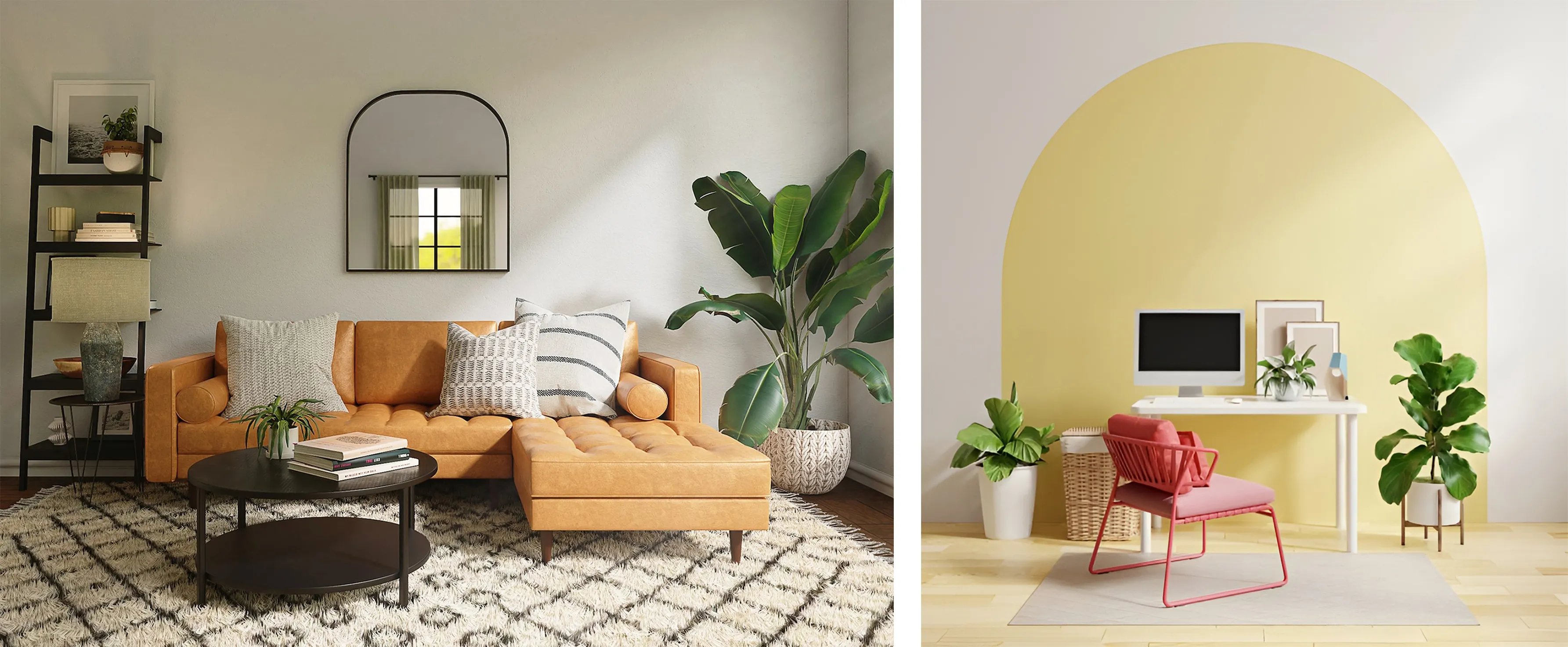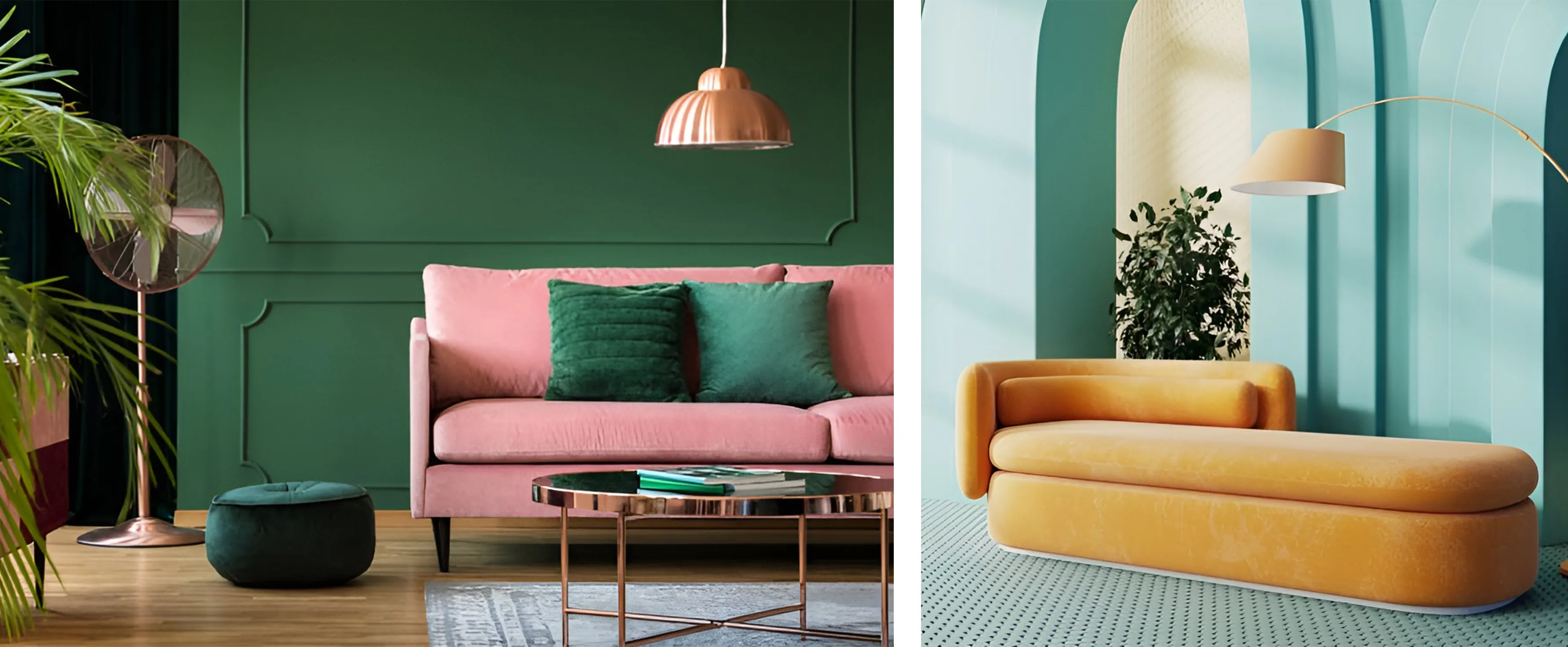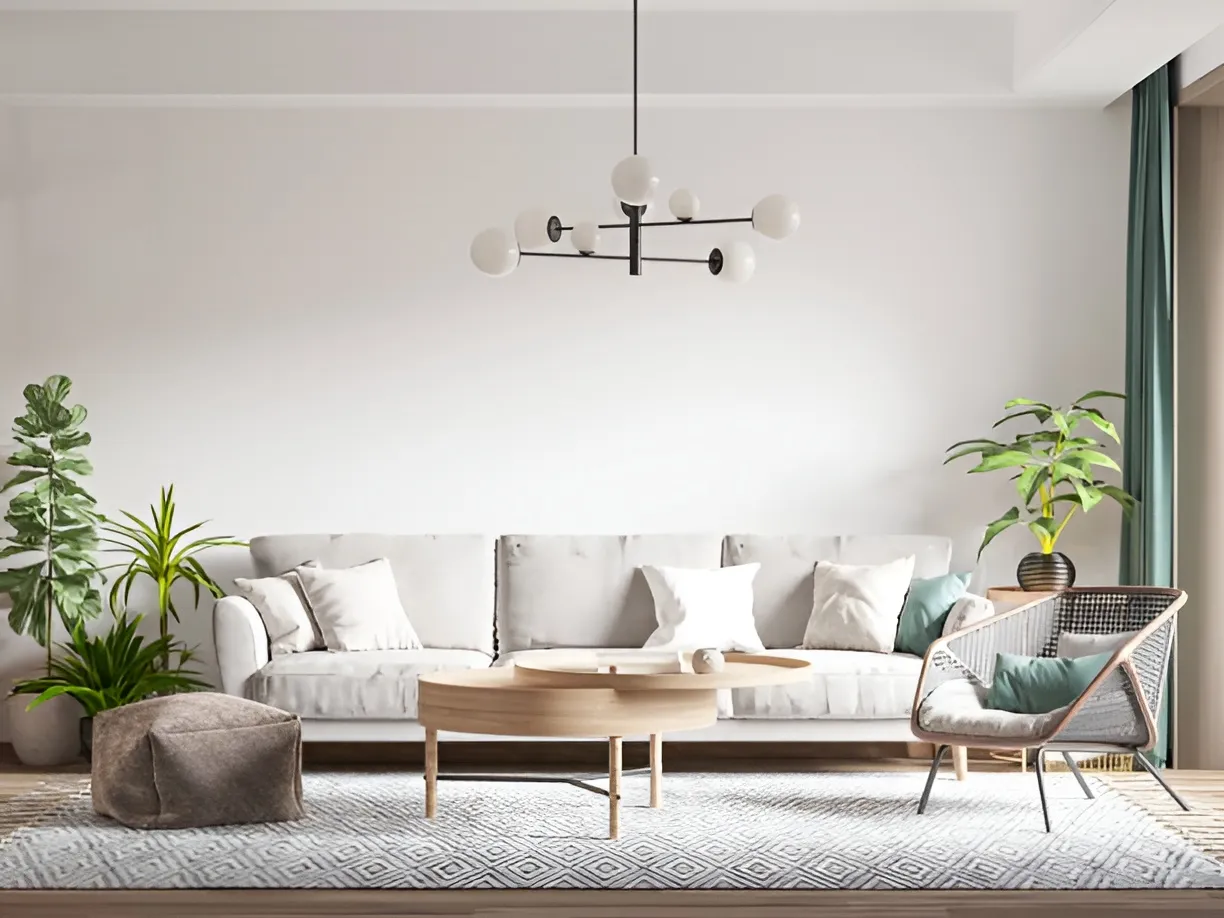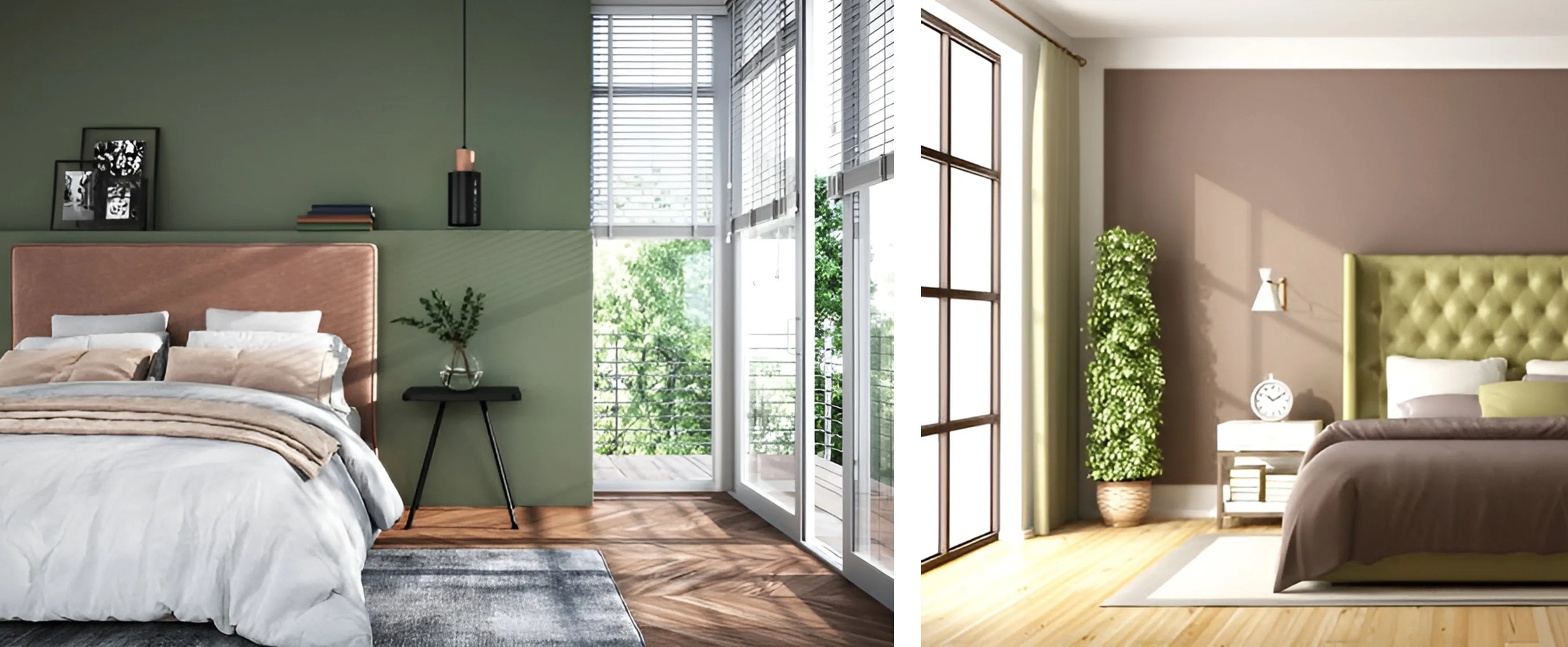Selecting the right colors to achieve a specific feel in a room can be difficult for common people with no design background. It is all about understanding color psychology and the emotional effects that different colors can have on people. However, here are a few tips and knowledge that we provide you to make this task easier.
Consider the purpose of the room
The purpose of the room can influence and affect the color selection. For example, a bedroom might call for a calming and relaxing color scheme (refer to image 01 below) as we spend more time there for relaxation, while a home office might require a more energizing and inspiring color scheme for an active work environment (refer to image 02 below). Therefore, the purpose of the room can help guide the color selection process and ensure that the colors chosen are appropriate for the intended use of the space.

Consider the existing décor
If you already have existing furniture or décor in the room, you’ll want to take these items into account when selecting colors. Look for colors that complement or contrast with these pieces to create a cohesive and harmonious color scheme. (refer to images below)

Determine the feel you want to create
Before you start selecting colors, it’s important to have a clear idea of the mood or atmosphere you want to create in the room. Do you want the room to feel calm and peaceful, energetic and bright, or something else completely? Decide how you want to feel when you will spend time in that room. This will help you to select colors for your room that will create this feel.
Consider Light Reflectance Value (LRV)
Light Reflectance Value (LRV) can contribute to color selection for a specific room feel. LRV is a measurement of the percentage of light that a color reflects, and it can have a big impact on how a color looks and feels in a room.
For example, if your room has very little natural light and you still want to create a bright and airy feel in a room, you might choose a color with a high LRV, such as a light or pastel color. These colors will reflect more light, which can help make the space feel more open and spacious. (Refer to image below)

On the other hand, if your room has ample natural light, you might choose a color with a lower LRV, such as a deep or rich color. These colors will absorb light, which can help create a sense of warmth and intimacy in the space. (Refer to images below)

Thus, LRV can also play a major role in selecting colors for a specific feel. Consider the LRV range that is most suitable for the mood you want to create in the room.
You should take all these factors into consideration while selecting a specific color for your room to achieve a specific room feel. However, this looks like a huge task, right? We are here to provide you with the solution to your problem of color selection. Our team of experts has the knowledge and experience to help you choose the right colors for your space, no matter what the purpose or style. We take your preferences for the room and use our expertise to suggest colors and color combinations that will achieve the desired atmosphere and mood. Try it out yourself using our ‘Discover Color Palettes’ feature.
With our guidance, you can rest assured that the colors chosen for your space will be harmonious, cohesive, and perfectly suited to your style and needs. Let us take the stress out of color selection and help you create a space that you love.







